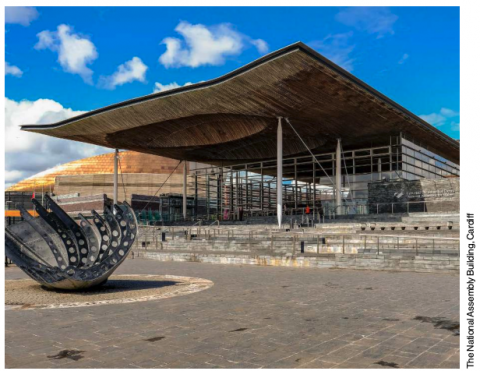Simon Grove-White – Previewing the CCIN Social Value Toolkit: establishing a new ‘commons sense’ in procurement and commissioning
- April 2025
We use cookies to help you navigate efficiently and perform certain functions. You will find detailed information about all cookies under each consent category below.
The cookies that are categorized as "Necessary" are stored on your browser as they are essential for enabling the basic functionalities of the site. ...
Necessary cookies are required to enable the basic features of this site, such as providing secure log-in or adjusting your consent preferences. These cookies do not store any personally identifiable data.
Functional cookies help perform certain functionalities like sharing the content of the website on social media platforms, collecting feedback, and other third-party features.
Analytical cookies are used to understand how visitors interact with the website. These cookies help provide information on metrics such as the number of visitors, bounce rate, traffic source, etc.
Performance cookies are used to understand and analyze the key performance indexes of the website which helps in delivering a better user experience for the visitors.
Advertisement cookies are used to provide visitors with customized advertisements based on the pages you visited previously and to analyze the effectiveness of the ad campaigns.
The Welsh Government is responsible for the public health response to the coronavirus pandemic in Wales.
The nature of the devolution settlement in the UK has allowed for a nuanced approach to managing the pandemic. On 15 May, the Welsh Government published Unlocking our Society and Economy: Continuing the Conversation, the national framework for moving Wales out of lockdown, which set out a traffic light approach to gradually relaxing restrictions. The framework states:
“Because the challenges we face are common to all parts of the United Kingdom, we, as a Government, have always strongly supported a four-nation approach to the lifting of the lockdown. But this has to respect the responsibilities of each Government to determine the speed at which it is safe to move and the balance to be struck between different forms of ‘easement’ – how to prioritise between allowing people to meet up with close family, to go shopping or to the hairdresser, to get back to work or visit the seaside. With limited ‘headroom’ to ease the current restrictions, choices need to be made and we want to make those choices in consultation with our stakeholders and the people of Wales.”
The Coronavirus Control Plan for Wales sets out how existing systems are designed to prevent the spread of the virus, as well as how new systems will respond swiftly to new cases at a local level. Containing outbreaks at source through effective health surveillance, testing, tracing and self-isolation is, most likely, the only way to avoid a return to the strict and intrusive all-Wales restrictions we have faced together. The plan makes clear that in Wales, the approach to controlling coronavirus is based on the principles of caution, proportionality and subsidiarity.
• Caution, because prevention is better than cure – preventing the spread of coronavirus should be our overriding priority. When considering whether to remove or introduce restrictions, we should take a precautionary approach; where there is uncertainty, we should err on the side of caution.
• But our actions must also be proportionate. The Welsh Government’s interventions should not be more restrictive than is needed to contain the virus. We must take care not to take action that harms the people of Wales in other ways. We will endeavour to do the minimum to disrupt people’s lives whilst keeping Wales safe.
• And, finally, the principle of subsidiarity means that decisions are taken at the most effective level – using local knowledge and expertise to inform local decision making by local elected Leaders and local action.
 The Coronavirus Control Plan is supported by a Communicable Disease Outbreak Control Plan for Wales and Local Covid-19 Prevention and Response Plans.
The Coronavirus Control Plan is supported by a Communicable Disease Outbreak Control Plan for Wales and Local Covid-19 Prevention and Response Plans.
Each of the seven Health Boards is working closely with Local Authorities and other partners to put in place and deliver local Covid-19 prevention and response plans for their areas. These local plans describe how Health Boards, Local Authorities and other partners – such as the Test Trace Protect regional teams, businesses and other organisations in the area – will work together. The plans set out the measures taken locally to prevent the spread of the virus, drawing on evidence of areas of high transmission risk. They describe how any rise in local cases and clusters will be identified and what the local response will be.
Fiona Gibson
Senior Corporate Policy Officer
Cardiff Council
Fiona.Gibson2@cardiff.gov.uk
www.cardiff.gov.uk